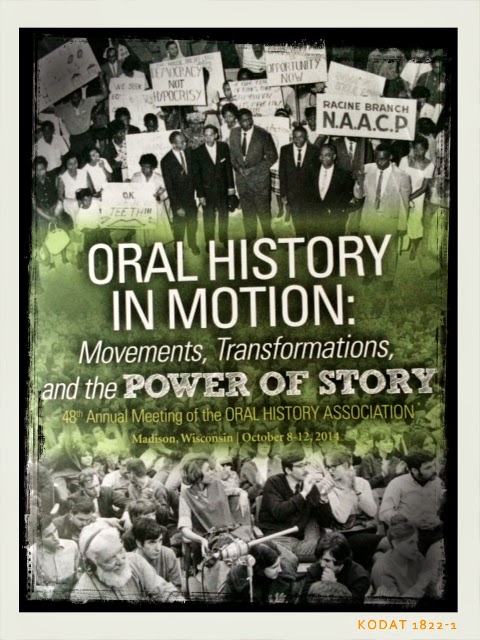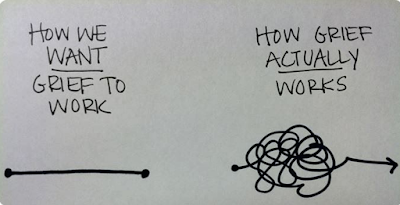Bishop Edward Daly, 1933-2016: May You Find Your Own Heart's Ease, Bishop Daly
 Bishop Edward Daly passed away today. He leaves behind a lifetime's commitment to his corner of the world and a faith that expressed itself in innumerable ways.
Bishop Edward Daly passed away today. He leaves behind a lifetime's commitment to his corner of the world and a faith that expressed itself in innumerable ways.Priest, bishop, historian, author, writer, archivist, performance director, radio and television producer, hospice chaplain, brother, friend. He was so many things.
Most of all, he was a decent and a good man.
Another ending. I feel a little heartbroken.
Josh Ritter's song, "Heart's Ease" is in my head as I think of Daly's life and of his passing:
I've crossed the desert and I've crested swells
The unknown country and the far-flung islesThe shores of faraway and the faretheewell.
There's nowhere else like my own heart's ease.
But really, could one have lived a better, fuller, braver more outspoken, more generous life? I don't think so.
 Dr. Daly is best known as the "Troubles" priest. Even in his death, the worldwide media is posting and reposting the same exact photo of him ---- a photo taken in his 39th year. (He died at 82.) An afternoon 43 years defined him for the world in so many ways. That afternoon, of course, was Bloody Sunday. The photo, to the right, depicts Daly waving a white handkerchief as a group of local men tried to move seventeen year old Jackie Duddy, who was shot as he ran away from British soldiers.
Dr. Daly is best known as the "Troubles" priest. Even in his death, the worldwide media is posting and reposting the same exact photo of him ---- a photo taken in his 39th year. (He died at 82.) An afternoon 43 years defined him for the world in so many ways. That afternoon, of course, was Bloody Sunday. The photo, to the right, depicts Daly waving a white handkerchief as a group of local men tried to move seventeen year old Jackie Duddy, who was shot as he ran away from British soldiers.
The moment was defining, I know. But I don't think it actually defined him. What moment can?
What defined Bishop Daly was Derry. He said once, "I've shared in the people's living and their dying, their joys and their sorrows." He loved Derry and in some ways, the city also broke his heart. Although he spent years away, he gave everything he had to Derry.
He wasn't universally loved, of course. His steadfast disavowal of violence and his stance on paramilitary funerals in Derry made him an anathema to some republicans. Despite this, British intelligence and the Royal Ulster Constabulary kept close eyes on him, making his life and work more difficult. They even gave him a code name, "Halo."
A few years ago, I wrote a review of Bishop Daly's second memoir: A Troubled See: Memoirs of a Derry Bishop. You can read it here. One of the things that struck me about that book, as well as his first, Hey Mister, Are You a Priest? was the calm courage with which he wrote about controversial and difficult things. From republican violence to the sexual abuse scandals in the Catholic church to the thousands of women whose contributions to Derry have gone unnoticed by history, Daly wrote the way he spoke --- with the timber of assurance and the compassion of a generous heart.
I didn't know him well, but Derry is a small city, and Daly an historian and chronicler of the city. I interviewed him twice and spent many afternoons at the Diocesan archives with him. In fact, one of the most important primary sources I encountered in 10 years' worth of study was dug up by the bishop. I treasured my time with him because of his humor, thoughtfulness, love of Derry and love of history. He was a kindred spirit. I know many people felt this way about him.
My enduring memory of Daly is less of him than of the warmth and loyalty he inspired. One day in 2008, I was meant to meet with him. It was raining and I had arrived at his residence on foot. A tiny woman, in her seventies perhaps, was waiting for me on his doorstep. "The Bishop (he wasn't bishop anymore) got called away to the hospice to deliver last rites. He told me to take you home with me."
Daly spent years as a chaplain at Foyle Hospice, one of the most amazing organizations in a city chock full of amazing organizations.
Her name was Teresa and we drank tea and talked about Barack Obama. Then, she pulled out the photo albums. She and her sister had known Daly for most of their lives. They were active in the musical and theater productions at St. Columb's Hall --- probably one of the places Daly was happiest and at his best. Teresa was devoted to him. She would literally stand in the rain waiting for a stranger to appear, just to do him a favor. And her eyes lit up when she talked about the music and the plays.
He directed pantomimes, plays, concerts, you name it --- Edward Daly was at his best when inspiring and organizing others' creativity. That says a lot, doesn't it?
The Derry Journal put together a lovely retrospective, illustrating the depth and breadth of his personality and commitments, alongside his intersections with History with a capital H. You can watch it here. They also shared a message he had recorded for a conference in Chicago on Irish American identities.
Daly spent the last fifteen years of his life helping his former parishioners as they passed from life into mystery at Foyle Hospice. He held their hands. He prayed with them. He played cards and he listened to confessions. He entertained doubt and he said Mass. As he passed, surrounded by family at Altnagelvin Hospital this morning, I can only hope that he felt the power of all of the blessings he bestowed to his city and his flock, day in and day out, including but by no means only on that January afternoon in 1972.
Rest easy, Bishop Daly. May you find your own heart's ease. Oh, how you've earned it.
 Dr. Daly is best known as the "Troubles" priest. Even in his death, the worldwide media is posting and reposting the same exact photo of him ---- a photo taken in his 39th year. (He died at 82.) An afternoon 43 years defined him for the world in so many ways. That afternoon, of course, was Bloody Sunday. The photo, to the right, depicts Daly waving a white handkerchief as a group of local men tried to move seventeen year old Jackie Duddy, who was shot as he ran away from British soldiers.
Dr. Daly is best known as the "Troubles" priest. Even in his death, the worldwide media is posting and reposting the same exact photo of him ---- a photo taken in his 39th year. (He died at 82.) An afternoon 43 years defined him for the world in so many ways. That afternoon, of course, was Bloody Sunday. The photo, to the right, depicts Daly waving a white handkerchief as a group of local men tried to move seventeen year old Jackie Duddy, who was shot as he ran away from British soldiers.The moment was defining, I know. But I don't think it actually defined him. What moment can?
What defined Bishop Daly was Derry. He said once, "I've shared in the people's living and their dying, their joys and their sorrows." He loved Derry and in some ways, the city also broke his heart. Although he spent years away, he gave everything he had to Derry.
He wasn't universally loved, of course. His steadfast disavowal of violence and his stance on paramilitary funerals in Derry made him an anathema to some republicans. Despite this, British intelligence and the Royal Ulster Constabulary kept close eyes on him, making his life and work more difficult. They even gave him a code name, "Halo."
A few years ago, I wrote a review of Bishop Daly's second memoir: A Troubled See: Memoirs of a Derry Bishop. You can read it here. One of the things that struck me about that book, as well as his first, Hey Mister, Are You a Priest? was the calm courage with which he wrote about controversial and difficult things. From republican violence to the sexual abuse scandals in the Catholic church to the thousands of women whose contributions to Derry have gone unnoticed by history, Daly wrote the way he spoke --- with the timber of assurance and the compassion of a generous heart.
I didn't know him well, but Derry is a small city, and Daly an historian and chronicler of the city. I interviewed him twice and spent many afternoons at the Diocesan archives with him. In fact, one of the most important primary sources I encountered in 10 years' worth of study was dug up by the bishop. I treasured my time with him because of his humor, thoughtfulness, love of Derry and love of history. He was a kindred spirit. I know many people felt this way about him.
My enduring memory of Daly is less of him than of the warmth and loyalty he inspired. One day in 2008, I was meant to meet with him. It was raining and I had arrived at his residence on foot. A tiny woman, in her seventies perhaps, was waiting for me on his doorstep. "The Bishop (he wasn't bishop anymore) got called away to the hospice to deliver last rites. He told me to take you home with me."
 |
| Daly here with musician James McCafferty backstage at St. Columb's Hall. |
Her name was Teresa and we drank tea and talked about Barack Obama. Then, she pulled out the photo albums. She and her sister had known Daly for most of their lives. They were active in the musical and theater productions at St. Columb's Hall --- probably one of the places Daly was happiest and at his best. Teresa was devoted to him. She would literally stand in the rain waiting for a stranger to appear, just to do him a favor. And her eyes lit up when she talked about the music and the plays.
He directed pantomimes, plays, concerts, you name it --- Edward Daly was at his best when inspiring and organizing others' creativity. That says a lot, doesn't it?
The Derry Journal put together a lovely retrospective, illustrating the depth and breadth of his personality and commitments, alongside his intersections with History with a capital H. You can watch it here. They also shared a message he had recorded for a conference in Chicago on Irish American identities.
Daly spent the last fifteen years of his life helping his former parishioners as they passed from life into mystery at Foyle Hospice. He held their hands. He prayed with them. He played cards and he listened to confessions. He entertained doubt and he said Mass. As he passed, surrounded by family at Altnagelvin Hospital this morning, I can only hope that he felt the power of all of the blessings he bestowed to his city and his flock, day in and day out, including but by no means only on that January afternoon in 1972.
Rest easy, Bishop Daly. May you find your own heart's ease. Oh, how you've earned it.








Beautifully written.
ReplyDeleteMoving tribute
ReplyDeletethanks!
ReplyDelete